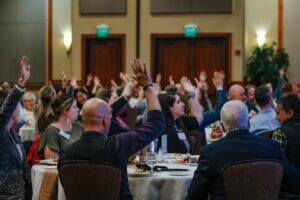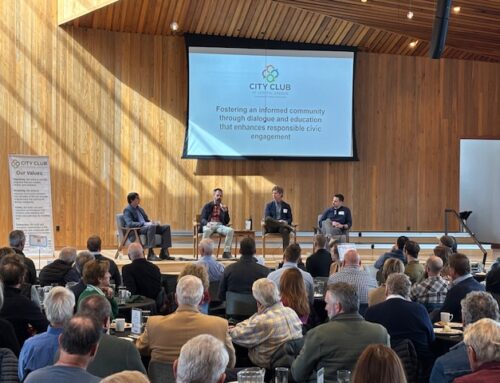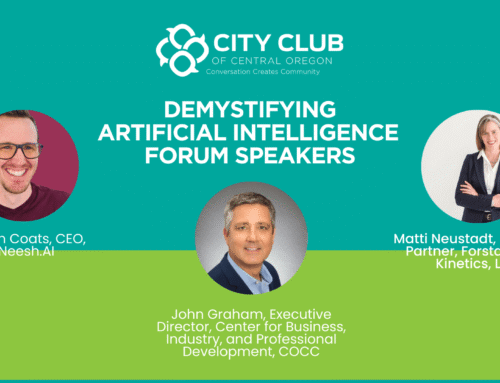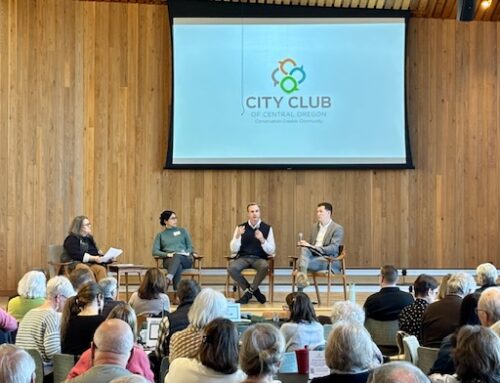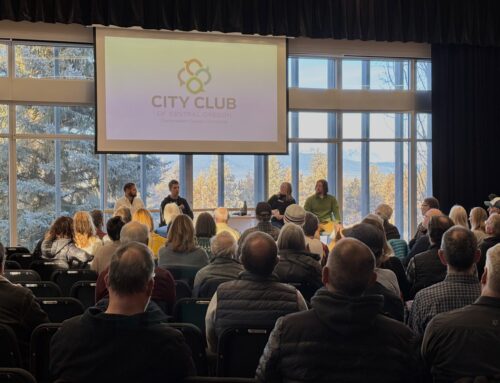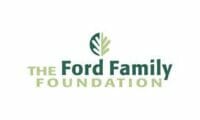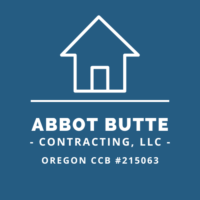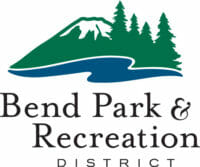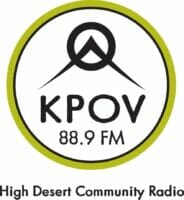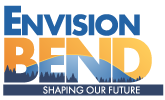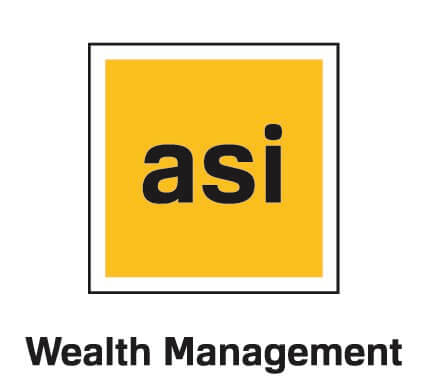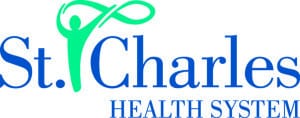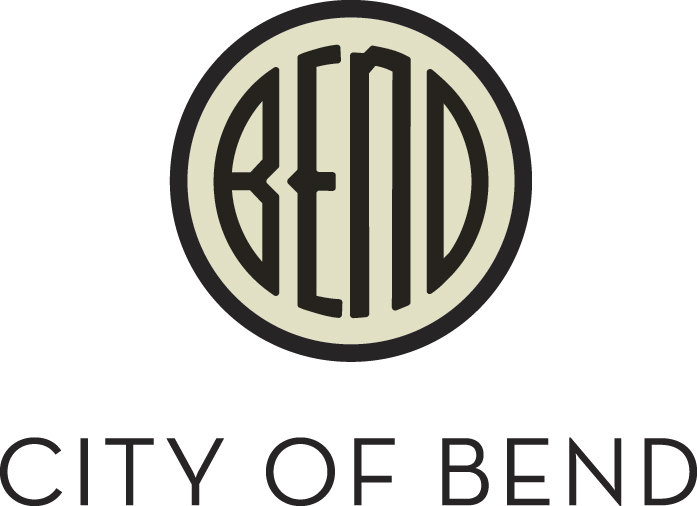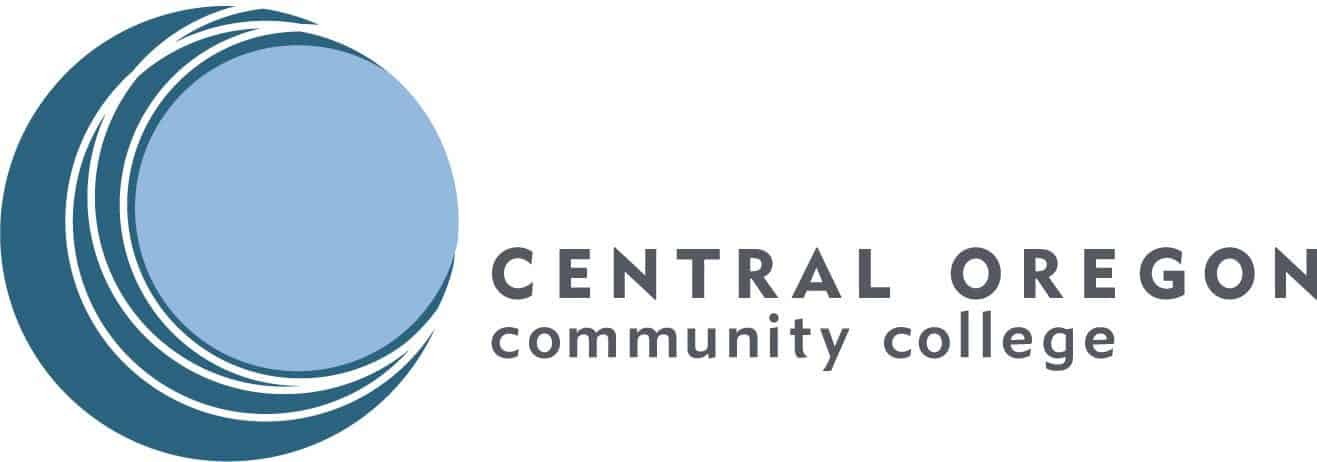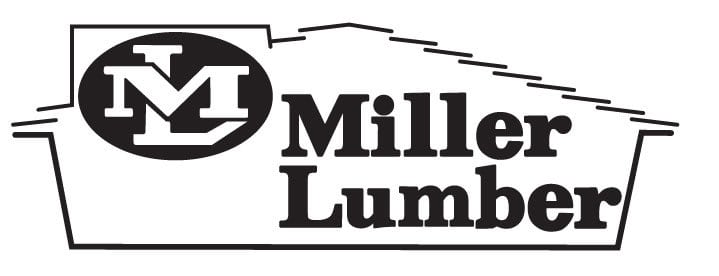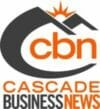Supported by the City of Bend, Central Oregon Association of REALTORS and the Desert Pine Group at Morgan Stanley.
This forum kicked off the Bend Vision Project’s public outreach. This year-long community visioning initiative is reaching broadly and inclusively across our community, leveraging our core values to create a vision and plan that will help greater Bend be the best community it can be for all its residents. Guests at the forum had the opportunity to discuss five areas for ideas about Bend’s future. Here is a summary of what groups come up with by area:
Ideas for Core Discussion areas developed in the room and from the virtual audience.
Livability: Focus rapid growth and development in Bend, including such issues as housing, transportation/mobility, infrastructure, recreation and related urban amenities, and how we can plan for a better quality of life for all Bend residents. What big ideas do you have to make Bend more livable?
- Research other states, cities and counties for examples of success
- We need universal pre k and afterschool care.
- Neighborhood corner stores! Neighborhood coffee shops– spot zoning for small commercial establishments in existing neighborhoods
- Support transportation flow by emphasizing parallel routes, multimodal; systems and transit corridors like sprinter routes.
- Be bold with an intentional approach to inclusion and affordable housing to create micro-communities, walkability and retail services
- ADUs/Cost of housing smaller scale development and row housing
- Core area housing for walking/biking prioritizing open space and master planning.
- Regional tree cover loss: Heat and shade. Add onto Climate Action Plan and carbon accounting frame.
Innovation: Focus on a creative, information-driven economy for Bend, including but not limited to tech- and arts-related enterprises, and how we can promote more innovation opportunities for our workforce. What big ideas do you have to make Bend more innovative?
- New energy sources development and funding – hydrogen and methane, for example.
- Human-centered, collaborative: shared resources (land, money, childcare)
- Cultural/Performing Arts Center
- Collective Collaboration. connecting the arts and businesses collaboration versus competition centralization of community resources Inform bend citizens about resources.
- If our buses were electric-powered, more frequent, & ran on a loop (vs multiple transfers), it would solve many community problems by incentivizing getting out of one’s car. I’d like to help it happen
Resiliency: Focus on a resilient Bend capable of preparing for, responding to and recovering from all manner of adverse situations including wildfire and natural hazards, and how we can help all of our residents be better prepared for every contingency. What big ideas do you have to make Bend more resilient?
- Further capacity building at the Deschutes County Fairgrounds for scalability to support regional evacuations
- Long-term planning for emergencies
- Preparation for wildfire and create a wildfire resiliency and evacuation. A plan that helps bring the community closer together
- The patience and persistence to endure and work towards a set goal
- More collaboration and a vision on our health care system for what this needs to be as the population grows so rapidly.
Civility and Inclusion: Focus on creating a welcoming environment in Bend, respecting people of all backgrounds, races and ethnicities, cultures and perspectives, and how we can promote a more supportive Bend for all of our residents. What big ideas do you have to make Bend more civil and inclusive?
- We’re Bend; we’re family. Slow down. Take a breath. Chill out. Go outside. Enjoy!
- Design cities for people, not for cars. Public rights of way can conduct civility and create the socially relevant spaces they can be
- Combating racism in our schools. Parents need to be held accountable.
Affordability: Focus on the rising cost of living in Bend, including housing, transportation, food, health care and other essentials of a good life, and how we can promote a fairer, more equitable Bend for all of our residents. What big ideas do you have to make Bend more affordable?
- Leveraging financial incentives for fresh food to go from farm to food banks
- Improved bus system
Transcript from the forum
Good afternoon, everybody city club members, friends, community members. Welcome. Thank you for being here today. My name is Jacob FA and I am your city club of central Oregon board president. Woo. Hi, thank you. So for a portion of today’s forum, we’re gonna be discussing ideas for bin’s future. At our tables, we’ve got some chosen moderators and worksheets for everybody to go through.
It should be fun discussion. And for our virtual audience you have the option of discussing in the chat and YouTube, or you can join us on zoom where you can have live discussions there. So before we get started, like to think our community platinum and gold sponsors and partners who are making today’s forum, impossible, ASI wealth management.
City of bend central Oregon community college, Oregon state university cascades campus, central Oregon association of realtors at Brooks resources and Pacific source. And thank you to our former sponsors today. The city of bend central Oregon association of realtors and the desert pine group at Morgan Stanley.
Let’s give everybody a round of applause.
I would say that over the past couple years, there have been a lot of changes. I don’t know about you. And there are a lot of people who have been moving into our community and many of us now have completely different ideas about where bend is today, where it was, how it should look and how we envision our future.
And so that we a, we asked when we move into the discussion today that you take a moment and consider that we all have different perspectives. We have different ways of seeing the world different things that we bring from where we grew up and where we live now. And so this is a great opportunity to practice the tools of civility that we speak of often here at city.
As we kick off today’s forum, I would like to invite our moderators today. Bin envision, bend executive director, Laura Fritz and city club, and envision bin board member, Zach Boone up to
the stage. Thank you, Laura. Can we get the can we get the slide trick going?
Well, I will get started, nonetheless. Hi, I’m Laura Fritz. I’m the executive director of envision Ben here with Zach Boone. Who’s also a member of our board as well as city club board. And we are really excited to talk to you today about the Ben vision project. We have a really interactive. Program for you in which you will have conversations at your table to share your ideas about how we can make positive impacts to shape our future as a community for the greater bend area.
Before I get started ums. I wanna take a moment. Next slide, please. I just wanna take a quick moment to explain to you why envision bend is taking the lead on this project. Our nonprofit is the one that’s running the Ben vision project. So I wanna give you a little bit of history about who we are and why.
Why we’re playing that role. So many people in this room probably were involved in the first vision project that happened way back in 2005, 2006. That was indeed called Ben 2030 visioning project. And once that project was finished We a bunch of volunteers really wanted to harness the energy around that effort and make sure that the vision became a reality.
And so they created a nonprofit also called Ben 2030, and that’s how our organization came to be as a 5 0 1 C3 organization. In 2020, we rebranded. To the name, envision bend that’s our new name and we love it. But really ever since our inception way back in 2007, we have been working with partners all across the community to take on the challenges and seize the opportunities that our community faces.
So that’s why we’re here today. Leading this. Important community initiative, but because we wanna spend most of our time today hearing from you I wanna call your attention to some papers on your table. We have a piece there that provides the envision bend mission, vision, and values. And I wanna tell you that envision bend.
Brings diverse stakeholders together to educate, engage, and empower all members of our community to have a voice in our city’s future. Our board of directors, and I really believe in our mission and we also are really committed to our values. Of transparency, inclusiveness, diverse perspectives and civility.
So you have that information on your table. Speaking of board of directors, a lot of them are here today. They’re dispersed around the room. If you want to learn more about the project, please talk to them, ask them about the project or our organization. So I will turn it over to you. Exactly. Next slide.
We wanna thank the many community partners who have stepped up this far to get us where we are today. You have those sheets on your table. I won’t read all of those folks, but we have the envision bend leadership Alliance. We have the VE vision project partners and the Ben vision project investors.
We could not do this work without each of the trust and backing of those organizations. So thank you all for your support. Perfect. Thank you. Next slide please. Great. So the purpose of the Ben vision project is to create a long range vision for our community that describes our desired destiny in 10, 20, 30 years down the road.
It really will serve as our north star for where we wanna be as a community. And the reason why we’re doing this is because we know that visioning actually. Forward thinking communities do it to guide their future and make sure that you’re not just leaving it up to chance. We did it successfully back in 2005, 2006, it had a tremendous impact on our community and we can do it again today.
So the Ben vision project runs about 16 months long. We started back in December, 2021 with a lot of background research and individual interviews, and we expect the project to be completed at the about springtime of 2023. So it’s about 16, 16 months as I mentioned. And if you’d like more information about the actual process itself, please go to our website.
It’ll be up on the screen at some. We really feel like the time is right. For this project. Just yesterday, for those of you who were at the EDCO luncheon similar meal delicious. We heard how important it is for businesses of any size to intentionally think about culture. So we want you to be intentional and think about bend and greater bend.
This project is done with that similar spirit we’re growing, we’re changing, we’re evolving. We think it’s vital that we collectively as a community, be intentional about, be intentional about where we want to go and to arrive at a shared vision, vision. This process aspires to engage the community deeply across many different demographic lines, including the notion of greater bend for those who routinely.
Dine recreate, visit family and friends, et cetera, and bend. And for those living just outside the urban growth found. So for this project to be successful, we really must engage people all across the full spectrum of our community so that the final vision truly represents our community’s desire for our future.
So that’s why we’re putting a huge amount of effort into getting out into the community to encourage and solicit participation in this process. We’ve created a number of different ways that people can engage including interviews, focus groups workshops, events like this and a community survey as well.
And we’re also committed to attending a lot of events. This. Summer throughout the city at different times, so that we can meet people where they’re already gathering. And then we’re always looking for opportunities to meet people where they already assemble, so that it’s easy for them to engage in this important community initiative.
The outcome we’re all about outcomes is to have a high level long term vision and a short term five year strategic action plan that will help guide some of these conversations. Envision bend is not the implementer, we’re the convener. So I think that’s important and this will help opinion leaders, stakeholders, the city C OIC county nonprofits, et cetera.
Have a vision for what the community really wants to see. And finally, I’ll say this will this be a perfect process? Nope. Will there be lessons learned along the way? Yes. Do the board trusted partners and our consultants know where this will end up? Nope. But can we as a community of bend and greater bend, come together and share the vision for what we want to be and who we want to be.
We think we can, I would also suggest that in this very tumultuous time in our nation region locally bringing together our community to discuss hopes, wants dreams and fears together with civility and without partisan. is our duty and our responsibility. So please lend your voice and your vision to help us get there together.
Thanks. So, okay. I’m going to turn it over to our consultant. Jillian Taylor with next consulting group and to our board member, Kathy Schroeder. Thank you.
Yeah, a more bright lights. Oh, it’s so good to see you all. Can you hear me? This the most people I’ve seen in a room in three years. so I, I wanna start by saying thank you. Thank you for making the time to be here and to be part of this process. This is a big moment. We’ve been doing a lot of work, kind of behind the scenes.
And this is a little bit of our coming out party today with all of you. This is gonna be really interactive. We’ll have table discussions. We’re gonna do a little poll here. In a bit because we wanna tap into your ideas. As Zach said, we don’t know where this is gonna take us. We’re here to guide the process and I don’t know about you, but I sometimes feel a little overwhelmed with what’s going on in the world.
And what gives me hope is to know that we can make a difference here locally. And to do that, we have to start by listening to each other. With grace and curiosity, understanding our differences and seeking our common ground. And so if we go to the next slide, we are starting by doing a lot of listening.
We’ve reached out to folks with really different perspectives, very intentionally. And what do I mean by different perspectives? In our first round of interviews, we spoke with people that live on the west side and people as be that live on the east side. We talked to folks that have a long history here, and then some people that are relatively new, we even spoke to some Californians.
We, we talked with students, parents and retirees. and people of all colors, black, brown Bish, as well as red, blue, or purple. We talked with folks from the nonprofit world, the government agencies, the business world, and our faith communities. Even athletes and couch potatoes, everyone gets a voice. We ask roughly the same questions for each person that we talk with at this stage.
And we will continue that through the online surveys and other ways that we ask for input. One of the, the common questions that we ask is, do you consider Ben to be a welcoming community? I’ll give you some examples of responses that I’ve had. So one person said yes, of course we’ve always been, we’re nice here in bend.
Another woman said I really don’t know anymore. And a third person said, no, unless you’re white and you’re wealthy. It was a white and wealthy person, man, that said that comment. So we are struggling, you know, to get beneath and really dig to make sure that everyone feels welcome here and we’ve got work to do.
So this is just a start. We are listening carefully to identify our shared values and our common concerns. So I’m gonna share just a little bit about what we’re learning so far. The next slide. The good news is that we do have some common values. Not everyone shares these many of us aspire to do better.
But the number one thing that I’ve heard a lot about in talking to folks is a desire to maintain a sense of community. And what does that mean? We’re, we’re asking that question. How will you know, it’s about simple things like seeing people when you’re out and about and saying, hello, it’s about making eye contact and smiling.
It’s about knowing your. and helping take care of each other. A great story that I, I love to think about of he, everyone coming together is when we’ve had wildfires here and livestock threatened, and it’s been all hands on deck for people who have trailers and means and land to help get the livestock where it needs to go.
That’s the kind of spirit we wanna maintain. Collaborating. This is an interesting one because I do think it’s relatively unique to bend. And that is a culture where we help each other, as organizations, as nonprofits, as businesses. I give a lot of credit to the brewery industry, which started many decades ago helping each other, lifting each other.
Sharing resources. And I interviewed an executive director last week, who is a one woman shop, but she has 57 other nonprofits that she’s partnering with right now that says a lot about who we are. of course we cherish our natural environment and whether we interact through hunting, fishing, snowboarding, cycling, or hiking, we all care about how to take care of our water, our soil, and our forests.
There is also an inherent creativity here. And I think a lot of what has gotten Ben to this point has been people before us that dealt with challenges and came up with creative solutions. When the lumber industry went away, bend dykes, came together and strengthened the tourist industry. When the last recession happened, we focused on some cluster.
Industries, sorry, lost my place there. And we recruited and supported them such as bioscience, outdoor gear, technology, and aviation. And so now we have a much more diverse economy. Again, it’s important to know that, you know, we don’t all share exactly the same values. But there are some consistent themes of what we aspire to and what we wanna build on.
Next slide, please. There’s also some common concerns. Everyone ha kind of sees life and been through different perspectives. But there’s definitely some themes here as well. And the first one I will call having a safe place to call home. And that gets to not just our homeless. Issue, but also affordability and bottom line.
That is a number one concern that I’m hearing about. I don’t think that will surprise any of you. I heard a story from one person about a working couple with two young children and their rent was $1,100 a month. It went up to $2,000 a month. They had to leave they’re living in their camper. It costs them $150 to fill the tank.
I don’t know where they are parking, but I’m quite sure that they desire to be homeowners. Again the environment, we talked about it such a catch 22, and we all recognize that, that the very things we love about our outdoor environ. Is what attracts people here. It attracts tourists and therefore puts more wear and tear and demand on our resources.
So how do we continue to grow and preserve what we cherish the most? We’ve done a lot of things. Well we, we sustain, retain and build on our strengths. We need to keep doing that. And we also need to identify what must change, how do we do better? And we need to address those concerns in creative and collaborative way.
And that is part of what we’re gonna ask of you today to start that conversation. So next slide please. So bottom line is that our challenges. Are also our biggest opportunities. As Zack said, we are at a pivotal time. I can’t tell you how many people I’ve been surprised have thanked us for doing this work right now for asking these questions for taking the lead and for gathering people together.
We can do this. I have no doubt that Ben can meet the challenges that we are facing today. Together and that we can start to shape a future that we all are proud of. So in addition to listening to folks, we’ve also done some research and some work around external forces that are impacting us, and I’m gonna go kind of quickly through these.
But there are, there are trends and issues that are impacting Ben that we all experience. We’ve gathered this data and it will be available on a report on the website from hundreds of sources. And of course it’s always changing too. There is, as you go from global to national, to local, there’s less data that is available locally.
However, we have reached out to many organizations to ask about their planning and their data and how we can make sure that. Are gathering that so that when we get to our action planning stage, we are not duplicating efforts. This information is gonna serve as a backdrop for our work to both address a change that is coming and make sure again that we’re not duplicating efforts.
Okay. So everything global next slide is also local. We experience these impacts locally. And we can see it in work at work here. For example, the smoke and heat and forest fires that climate change used to be something that might come to us. And now it’s here. Softer trends like social and economic inequality and changing culture.
Might be a little bit different here just by nature of our demographics, but we still see there are changes happening that we need to recognize. And that’s why, because we are unique and how these trends impact us, that this is not a one size fits all process. And we really need to come together and, and get started.
So we’re gonna start first with a quick pull and I’m gonna ask my colleague Kathy, to come up here. Think of this as a lightning round, we’re interested in what you are experiencing in terms of change. And Kathy is gonna ask a question and I really like you to not use. okay. Yeah. We’d like you to raise your hands if it applies to.
no. Hello? I’m sorry. Hello. good morning. So I’m excited to be up here and talk to you. I’m another one of the board members for envision bend. One of the other people really committed to helping facilitate this thinking process, catalyze your imagination and your interest. So I wanna start by asking just a few questions that kind of got me questions, but I wanna know, have you, can you please raise your.
If you’ve been caught up in commuter traffic on highway 97, or had difficulty getting a reservation at your favorite restaurant, like maybe Ariana. Okay, great. Next slide. Sorry. Oops. That’s not you. okay. So yes, this, we have five themes today embedded in our work and one is livability. And so we know that bend is growing.
I’m sure that’s not a surprise. Our population is estimated above 100,000 people. It’s forecast to grow to nearly 124,000 in eight. And 154 residents by 2040, that is double our population from 10 years ago. The other big impact to our community that we’re seeing and feeling every day are the number of visitors that are coming here.
As many as 20,000 people on a sunny day on average, Come to our community. We also have tens of thousands of people that are commuting into bend every day. And so, yeah, it’s getting a little bit more trafficy. All right. Next slide please. All right, get ready. Raise your hand. If you’ve personally known someone priced out of Ben’s housing market or someone who cannot find a place to rent.
Wow. Look around that room. Next slide. Okay. Again, probably not gonna be a surprise to any of you. But some of the, the data might the median home listing price in bend in may was $775,000. Compared to 530, 7,000 in Portland. And I moved here just over 10 years ago. At that time, Portland and bend were pretty equal in livability for housing prices, our income, our household income here, however, is significantly lower than in Portland.
And in fact, we have one in 10. Bend households that are living below the poverty line right now. We also can see that the lack of affordable workforce housing is undercuting our economy. The Ben bulletin just had an article about the severe shortage of workers and job vacancies. One more all I’ve got one more minute.
All right. So now raise your hand. If you know someone in bend, like my husband who works for a tech startup, or who tele commutes from. Anybody know a tech startup worker or a tele commuter, look at this room full of yeses. Go ahead. Oh, okay. Okay. So we know that creativity remote working and tech driven companies are growing here as well.
Even before the pandemic, we had a high percentage of folks that work from home, and now I’m sure you’ve heard the term. We are a zoom town. All right. Next slide please. All right, so this is a more difficult topic, but please raise your hand. If you’ve witnessed or heard about negative behavior toward people based on their identity or you’ve experienced it yourself.
Thank you.
I really want us to be nice. And while we are seeing some fracturing and, and some situations where folks are not acting at their best, I wanna do a shout out to city club for promoting their rules of civility and setting that context for all of us. I think they are leading the way in promoting a, a positive culture for us.
Okay. All right. Finally, raise your hand. If you’re stayed indoors more than once because of wildfire smoke or packed your go bag and put it by the door sucks. Doesn’t it. A few years ago, I was in a fire evacuation area and figuring out what to throw in my. Beside my kid and my pets was a hot mass difficult decision.
So yeah, we are in our third consecutive year of a drought emergency. The acreage burned by wildfire has increased sevenfold since the 1970s and a new study that came out said that 97% of all properties in the county will become at risk of wildfire over the next 30 years. Next slide. Okay. Okay, so this can all sound a little bit down, little bit depressing, but that’s okay.
Cuz we’re, you know, part of solving problems is really understanding what they are and getting out of our bubble and looking further in the horizon. So trend is not our destiny and it can feel overwhelming, but the good news is that actually compared to many cities We’ve we’ve done a lot of good work, a lot of groundwork, and I’ve been impressed with the, the city of bend the county, C O I C nonprofit agent agencies, Ben parks, and rec.
So many organizations are really looking ahead and planning. And so we just need to keep that momentum going. This is no time to rest on our Laurel. We need big ideas. One of the outcomes of this project is what we’re calling game changer, projects, things that really move the needle in the right direction.
Bend leaders and residents have tackled these kinds of challenges in the past. And now it’s our time and we’re gonna tap into your creative thinking, Kathy. Thank you. Mm-hmm all right. Next slide please. All right. So now we’re gonna start the time where we’re gonna talk at our tables to think about the big ideas.
Next slide please. I know you will remember that a few slides ago, Jillian talked about the four core values that she’s identified in talking with people around Ben, caring, collaborating, cherishing the outdoors and creating. I’m gonna ask everybody to think for a second, about a time that you were happiest and most joyful here in bend, maybe you were skiing in the powder.
Maybe you were floating down the river. Maybe you were at one of our breweries enjoying time with your friends. There was a time where magic was created in your life here. So bring that thought, please. And think about what big idea. Grounded in that joy grounded in that love for our community. Can you guys brainstorm about in an area that each one of your table tables, hats, we’re looking for your best thoughts, and we, we wanna do that because you guys are the community leaders that push this community forward.
So we are really relying on you guys to come up with some big ideas today. Next slide. So there are five discussion themes. Each table has already been assigned one. Each table has a discussion facilitator. And what we’re gonna do is each one of you are gonna spend the next 15 minutes talking with folks at your table, coming up with some lists of big ideas, agreeing on one or at most two, if there’s this big stubborn disagreement at your table about what the best ideas are, and then sending them to us on men meter.
Next slide. so we are very excited to turn you guys loose for the next 15 minutes to focus on some of these ideas. Let your imagination soar and think about. Intentionality, because who we’re going to be eventually is gonna be based on what we intend to grow into. Collectively. This room can change the world.
Let’s start by thinking about how to change bend in these ideas. I will come back and ask you guys to get your mentee meter submissions ready in 10 minutes. So please start talking and thank you so much for thinking about the future of bend. Five themes that y’all were discussing. Can you tell? I came originally from Southern Indiana.
are up above livability affordability innovation. So just pick one and tell civility and inclusion and resiliency and through the magic of mentee meter, we’re now gonna share by topic what you guys came up with. So first can I see the livability results? And if you have trouble, Zach,
Typing is happening slowly. So David would like a mic come in at you come in at you. Hey,
all right. Livability agreed to a mic. First of all, I wish we had more time. This was great. I have a great table. Thank you for your feedback. Ultimately without trying to solve it. I think the theme that came up from many different people at my table was looking at other city states and countries that have already made this work and learning from what they did or didn’t do the first time.
That’s a great response. So a systematic position of looking around and, and looking at what other people are doing and learning from what other people are doing. That’s great. Here are some other responses, which I, unfortunately Zach cannot see from here very well. So maybe you can read them. Yeah. We need universal pre-K and afterschool childcare.
We want developers to be required to retain trees. Be bold, an intentional approach to inclusionary and affordable housing to create micro communities, walkability and retail services, research, other state cities and countries for examples of success and ADU Casa housing, smaller scale housing density, row housings core area housing for walking, biking, prioritizing open space, master planning, tree cover loss, heat shade layer into climate action plan and carbon account frame.
Wow. Wow. All right. So that was the policy won table. I like it. All right. First of all, let’s have a round of applause for these ideas about livability. All right. My final slide is gonna contain an email address. So if you guys have ideas that you don’t see up here, that you are burning to share about livability, we will be inviting you to email those to us.
Okay. Does anybody have anything else they wanna say about livability before we move on to affordability?
All right, next, next one is affordability. Can I see the results from that?
Ooh, those are some compelling results. Did anybody have affordability? Who, who had affordability? Okay. Okay. So mentee sucks. I’m sorry. Mentee may not have gotten yours. Peter, do you want to tell us what your table. Sure. We had a very vibrant discussion. I wish we had the solutions right here at the table, but for big ideas, we focused a lot on transportation and the right incentives to frankly develop the kind of housing that was mentioned in the livability section before.
Great. Thanks Peter. All right, Kelly. This table have a afforded building. Yep. So the big idea that we agreed on from our table, which was a great table. I appreciate all of you was leveraging financial incentives to get fresh food from farms to food banks. And because I have the microphone and nobody can wrestle it away from me, Zach can, I’m gonna throw a second one that is pay city counselors so they can engage actually.
And meaningfully in problem solving. All right. So let’s, let’s clap about those results. And let, let me underline from the affordability perspective, I don’t know if you guys saw the article about neighbor impact and the challenges that it’s facing and Scott Cooper really specifically saying they need funds to get food from the fields to the people.
So next one is innovation. Can I see the results for innovation? Yeah. Also blank. So we need to know which tables those are. Innovation who had innovation. Oops. That’s not even it’s. Alright. It’s alright. That was, it was us, Zach. it was us. It’s. Alright. That’s better.
Somebody’s gotta talk. All right. We had innovation, we have a lot of stuff. This was a cool conversation and started from actually more of a livability standpoint, but it was like, how do we start pooling some of the communal resources that we have together, whether it be like something like a universal, basic income or landowners being able to, you know, like the college was a big one.
We’ve got a lot of college people at the. And you know, how do businesses corporations start to pool their employees together for the greater good of the community? I think we were the collection one. Oh, there we go. All right. So hold on. I think, can you do ’em we also had innovation. Ours was a collective collaboration and not.
Only with the arch, but with businesses, men working with nonprofits with other entities, working together, basically collaborating versus being competitors. Thanks, Linda. All right, so let’s get a big round of applause for ideas on innovation. All right. Next is civility and inclusion. Can we see what are ideas we got for civility and inclusion, please?
Wait for it. Wait for it. We’ll just come to the table. Ruth coming back.
I think maybe I typed it in into a different category, but here’s what, here’s our big statement. And we talked also a lot about transportation impacts or the impacts of transportation upon. Civility inclusivity. We talked about affordability and inclusivity as well. We came up with this. So as our big idea, design cities for people, not for cars, public rights of way should be socially relevant places, which helps lead to greater civility.
That’s great. All right. Do we have anybody else who worked on civility and who wants to share back table? All right. Thanks Zach. Emma. Yeah, I actually typed it in and thought I had submitted it. So it’s out there in cyberspace. Sorry. Mentee’s a little . We, we talked a lot about things like having a visit, like a local campaign, but targeting, not just visitors, but targeting people that are moving here and targeting people that are long time reside.
So tapping into everybody’s sense of what, what it is to be here and really promoting the good side of things. So things like we’re bend we’re family, slow down. breathe. Take a breath, chill out, go outside. That’s great. Thank you. All right. Let’s get a round of applause for civility and inclusion. All right.
Finally, resiliency. Resiliency is our last one. Maybe it’ll come up. Maybe it won’t who worked on resiliency in here. These lights. Okay. Zach here? Yep. Chris’s table. I can’t see. Who’s your spokesperson. I don’t Chris.
Quite a healthy conversation here went around the table and we took some left. We took some rights on the conversation, but it was, it was pretty healthy. So the first one we had was wildfire in terms of resiliency and ma making sure that we’re building defensible space. So we create safe neighborhoods and by creating safe neighborhoods, we’re hoping that to build a stronger culture and community with our neighbors to get to know our neighbors.
Which I think might overlap with civility. The other was what about our evacuation plans with, with resiliency? We’re we have our evacuation center for those on the other side of the mountain that are coming over here. But what about us? Right? Are we gonna take a bullet trained with burn?
Or are we gonna go west? So working on ways to collaborate and on that area of, of resiliency, the other one that was noted down was community forum to debrief what went well and what could improve after dealing with such adverse situations. That’s a great idea. So we had a, a really healthy group round table and that’s our contribu.
All right. Does anything, Kathy? I’m excited to go to the Harney county vision project, bullet train from bend. no, they’re, they’re really high on that idea. That is that’s gonna be quite a discussion. Anybody have anything else to share in this area? All right. Can I have the next slide, please? Hold on. One more.
Bill. Coon is raised. Oh, sorry, bill. I didn’t mean to ignore you. My apologies. Get recruited. There you go. And then you get ignored. That’s not fair at all. So I appear to be mentee challenged as well. My idea I thought was submitted, but anyway, we had a real vibrant discussion with our table around resiliency as well.
And our big idea was really building out capacity building at the fairgrounds, which has been identified as a FEMA site, but we frankly are lacking in capacity in the event of posting a large scale FEMA evacuation. And so we we talked a lot about what that might look like and how to go about making sure that we’re collaborating with regards to funding and some of the other development that’s happening up in that area.
And then we also too touched on transportation planning working closely with red cross with law enforcement to really build out a cohesive plan that we’re able to execute upon in the event that we need. Excellent. All right. Let’s have a round of applause for our resiliency. All right. So we are not going to be able to pull this off.
If we don’t keep getting this kind of participation, this quality of ideas, this kind of passion for the community. So next slide, please, please join us. Please be part of our effort. We’re looking for people to take an online survey. We’d like to have tens of thousands of people share what they think about this community.
We’re looking for people to attend our launch week, to visit our website and sign up for our newsletter to, to participate in our listen and envision discussion series, which we’ll be announcing. And so we. are gonna move forward to the extent that we all collectively can put our effort and our heart behind being intentional about where our community goes.
Next, next slide please. So I promised you an email address on the last slide. So two pieces of good news. Here’s the email address and I’m on the last slide. Thank you all very much for participating. I wanna mention too, not on our slide is if you wanna support our work financially, we do have a donate button on the envisioned bend.org website.
We are not entirely funded by the city of bend this time. Last time we were, the county is also considering funding us. And so if you know any county commissioners in the one in the. Spoiler alert has already has already committed to going this way. We would love to have support from the county as well, so please feel free to reach out to them, but mostly please leave here feeling like we are in control of the destiny for Ben, to the extent that each one of us invests in, cares about communicates about and works toward a vision for the future.
Thank you very much. Now, I forget who I’m introducing. Here comes, Kim,
thank you so much to the envision bend staff and board and volunteers that help put together today’s program, especially Kathy, who both serves on the envision bend board and our program committee and got to navigate between our two organizations for the past couple. we could not bring you these forums, especially in a hybrid format without our sponsors and members.
So thank you to all of you who are involved in city club. And if you are interested in what that looks like, please do not hesitate to reach out to me. Thank you to all our elected leaders in the room today. We have representation from the Ben school board, the city of bend Deschutes county commission and Ben parks.
And. and then on your tables, you have these little wrap cards and there is a QR code on the back. And, and if you’ve been to a restaurant in the past two years, you probably nice and familiar with QR codes now that will take you directly to the link for envision bend. The server. Yeah. On July 14th, please join city club.
Back here for our presentation on getting from here to there, transportation, visions and realities for central Oregon. Thank you for all being here today and for participating in a wonderful discussion we will be, we will summarize the results and the ones you couldn’t see and, and make sure that gets out to you.
Please continue to cultivate conversation about issues that connect us to build a strong community. Thank you.

